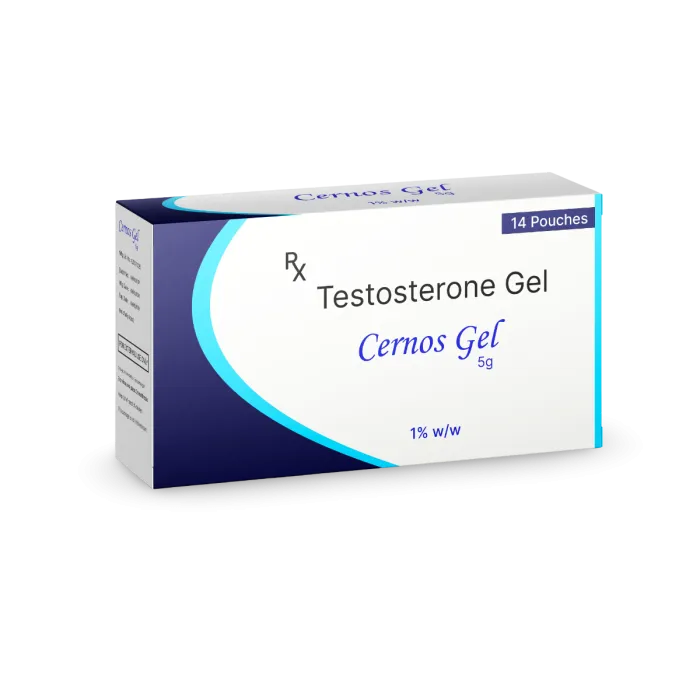The energy boosts you get in your gym sessions, the shining hair, and improved fertility and libido result from Testosterone.
Our bodies naturally produce Testosterone, which is primarily a male hormone.
It is also essential for muscle mass and strength, the development of physical and sexual characteristics, and metabolic and mood regulation.
However, a synthetic replacement of Testosterone, known as a steroid, possesses somewhat similar qualities to Testosterone.
Athletes mostly use steroids because of their ability to increase muscle mass and strength.
But is it beneficial if compared with Testosterone? We have seen multiple debates on Testosterone vs steroids to find a better option.
Let us compare both Testosterone and steroids and find out their benefits and risks.
Key Differences: Testosterone vs Steroids
There are several key differences between Testosterone and steroids.
Testosterone is a natural supplement produced by our body. In contrast, steroids are synthetic or man-made and act in the same way as Testosterone.
Testosterone has various benefits, including sperm production, increased libido, and bone strength.
Steroids also have similar benefits. However, they are mostly used for increasing muscle mass.
Testosterone is used in Testosterone Replacement Therapy (TRT). It is medically supervised for the treatment of low Testosterone in men.
Contrarily, the majority of steroids are not under medical supervision, and their misuse may result in a number of health risks.
It would be best to have a valid prescription from an authorized healthcare expert for using Testosterone supplements, whereas you may take steroids without any doctor’s consultation.
However, it would be best to seek the advice of a medical expert for the safe and effective use of steroids.
Save up to 90% on your medicine bills

Cernos Gel 1%w/w

Cernos 40 Mg Soft Gelatin Capsule

Sustanon 250 Injection

Carmel Organics Ashwagandha Extract Tablets
Benefits and Risks of Testosterone and Steroids
 Source: Kzenon
Source: KzenonThere are multiple benefits to using Testosterone and steroids.
However, several risks are also associated with Testosterone and steroids.
Let us take a closer look at the benefits and risks of Testosterone and steroids.
Benefits of Testosterone and Steroids
Testosterone is an essential male hormone that has several benefits.
According to a study, Testosterone helps to increase muscle mass and strength and improve bone density and sex drive in men.
It also aids in managing low libido in men.
Research by Harvard has mentioned that Testosterone is vital for sex drive and performance.
If you want to know more about how Testosterone aids in increasing male libido, you may read: Does Testosterone Increase Sex Drive? Exploring the Link Between Testosterone and Libido.
There are several other benefits of steroids as well. Steroids help increase muscle mass and reduce inflammation.
It also helps to manage several medical conditions, such as Asthma, Multiple Sclerosis, Eczema, and Arthritis.
Risks of Testosterone and Steroids
 Source: Jittawit_21
Source: Jittawit_21Use of both Testosterone and steroids may result in side effects.
The risks associated with Testosterone include hormonal imbalances, cardiovascular risks, and Infertility.
According to a study, TRT might also lead to male Breast Cancer. Another study mentioned that high Testosterone levels might lead to Prostate Cancer and Hypertension.
Steroids may also cause several health risks, including liver and heart problems, stroke, blood clots, and cancer.
Due to misuse, steroids might cause several side effects. Some common side effects are acne, scars, hair loss in men, Depression, and a deepened voice in females.
It is advised to contact a legitimate doctor if you experience any risks associated with Testosterone and steroids.
Key Notes
Testosterone and steroids effectively increase muscle mass and strength and improve bone density.
Although they both might contain similar chemical compounds, they are not the same.
It is essential to know the difference between Testosterone vs steroids.
Testosterone is naturally made in the body, whereas steroids are not natural and are synthetic.
Testosterone helps to develop physical characteristics and improve sex drive.
Steroids help manage health conditions such as Asthma and improve inflammation.
They both have several benefits and risks associated with them.
Testosterone may cause Breast and Prostate Cancer, and steroids might cause cancer and heart problems.
It is essential to contact a doctor to prescribe Testosterone supplements and steroids to avoid any associated risks.

Frequently Asked Questions
Are the functions of Testosterone and steroids similar?
Yes, the functions of Testosterone and steroids are somewhat similar. Testosterone is used to increase muscle mass, muscle strength, and bone density. Steroids are also used to increase muscle mass and strength. However, for effective and safe use of Testosterone and steroids, visit your nearby doctor.
Can women benefit from steroids and Testosterone supplementation?
Women may benefit from Testosterone supplementation under the supervision of medical experts. However, women should avoid the use of steroids, as it might increase the risk of potential health problems and side effects. Women should always contact licensed medical practitioners before using these supplements.
What are some symptoms of low Testosterone levels?
here are several symptoms of low Testosterone levels. Some common low Testosterone symptoms include low sex drive, decreased muscle mass, and Erectile Dysfunction. It is vital to seek medical attention if you experience the symptoms of low Testosterone.
What essential points should be considered when taking Testosterone or steroids?
There are several precautions you must consider before using Testosterone or steroids. Some of them include consulting a qualified medical professional, following recommended dosages, and being aware of potential side effects.
Are there any side effects of steroids?
Steroids are usually safe and do not cause any side effects if taken properly in short dosages or for a short time. But sometimes the consumption of steroids might cause Insomnia and mood changes. The misuse of steroids might also cause several side effects, including pimples and hair loss.
Cheap Medicine Shop only refers to credible, authoritative sources for our content. If you’re curious about how we ensure the integrity of our content, we encourage you to read our Content Information Policy.














